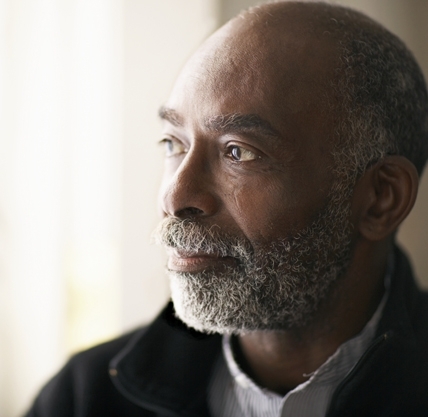
When I was 9 years old, I hit my head on concrete at school playing football during recess. I laid there dazed then got up and went back into school and finished my day. That night I had blurred vision and a headache. I was hospitalized for two weeks, and my mother said I had a blood clot in my brain.
I quit school my sophomore year, have had difficulty holding a job, and have had problems with organization, concentration, focus, and problem solving. I am 59 years old now and sell insurance. I was recently diagnosed with ADD and I am on 10 mg Adderal daily; however, it doesn’t seem to be making much of a difference yet. Could a brain injury like mine as a child have had lasting effects, playing a role in my lifelong difficulties? And 50 years after the fact, am I too late to do anything about it?
A traumatic brain injury may result in lifelong cognitive symptoms, such as difficulty paying attention, concentrating, remembering, organizing, solving problems, etc. When children sustain a TBI, their recovery may appear quite good early on, although cognitive skills that typically begin to mature in adolescence and early adulthood may lag behind or fail to fully develop.
Ideally, people with a TBI who have symptoms related to their injury should receive timely treatments that can either reduce or eliminate the symptoms, or assist in developing compensatory strategies to lessen their effect on daily function.
There are several medications that can improve attention, such as but not limited to Adderall. An additional treatment modality is cognitive therapy. While cognitive therapy should be initiated shortly after a TBI, it is possible that treatment many years afterwards may still be beneficial.
About the author: Steven Flanagan, MD
Steven Flanagan, MD is professor and chairman of the Department of Rehabilitation Medicine, New York University School of Medicine, and the medical director of the Rusk Institute of Rehabilitation Medicine, New York University Langone Medical Center.


Comments (8)
Please remember, we are not able to give medical or legal advice. If you have medical concerns, please consult your doctor. All posted comments are the views and opinions of the poster only.
Amy replied on Permalink
Hyperbaric oxygen therapy can potentially help to heal even very old wounds. It helped my son greatly, 12 years after his brain injury. I know an 80 year old woman who is doing it for dementia. Stem cells, too are showing great promise for brain injury. (We got some good results). Anecdotally, and I am no expert, what I understand is that there are probably cells and tissues in your brain that are functioning at less than full capacity and are still open to being at least partially healed.
Anonymous replied on Permalink
I was in a car accident at three. Thanks for asking this question as sometimes I feel off but can't control it. I a! Also sick and over family members expecting me too be the same all the time and live up to their expections! I do the best I can, I have vision problems that aren't attention getting attempts. Learning disabilities. Memory blanks but can remember everything down to what color dress a person wore 30 years ago. That along with having to see the ugly scars from my face hiting the clock in that old car.
Olive replied on Permalink
So sorry that your family has expectations and pressures you. I like Dr. Laura Schlessinger's radio show. I think she would encourage you to say " So what!" to those kinds of comments and walk away from those ignorant folks. Form friendships with those who are kind and supportive. Take care.
Sasha replied on Permalink
With all of the data coming out on neuroplasticity, I am surprised that this article has such a short list of suggestions! YES - people continue to improve years after a TBI, so if you are struggling in your daily life, what's the downside to trying a few things? Consider cognitive rehab to help with daily life tasks, neuro vision therapy (check nora.cc for providers and a description), anything physical that you can do that employs both sides of your body (e.g. yoga, swimming, walking), or biofeedback to help with emotional responses and neurofeedback to correct Delta waves for better sleep or Alpha waves to reduce anxiety. Changes are often slow and subtle, but they DO add up, so I encourage everyone to try things that they think might help their deficits.
Olive replied on Permalink
Thank you. I had 2 falls on concrete. The first from a pram at 13 months old. The second at 11 yo from a bike fall onto the curb. ( helmets didn't exist!) Unconscious, no memory of it, or the ambulance ride.... had amnesia in the hospital. Have ADD, lifelong depression and anxiety. Headaches as a kid. I will look up the therapies you recommended.
Anonymous replied on Permalink
Actually it is everything else that must change: modern life is way too complicated and stressful, if everything were simpler we with brain injury wouldn't struggle so much and the 'normals' would be far happier and less stressed. Silly me, it's not going to happen is it when it suits so many (who profit from things as they are: too complex, keep the access/know-how out of our hands) to make things even more complicated. Lack of control causes stress and breakdown, no wonder 'mental health problems' are on the rise. We are told we're wrong and must change but that isn't true. Easier to blame us though for being different and 'too difficult/demanding.' Cruel.
Anonymous replied on Permalink
I really glad you asked that question. I'm 55 and I believe I may have had up to 8 concussions before I was 15. I'm worried about how it is going to affect me in later years. I was never diagnosed but I'm sure I hit my head hard enough on several occasions when I was a child from getting hit by 3 cars to running into things on my bike and even falling off an embankment. I was knocked out a couple of those time and had blood coming out of the corner of my eyes on another. with all the publicity TBI is getting now I'm starting to worry.
Anonymous replied on Permalink